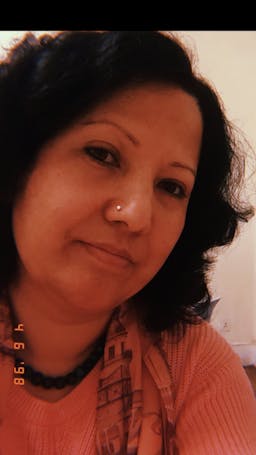Third gender in Nepal: Struggling for their existence
Jan 21, 2015
Story
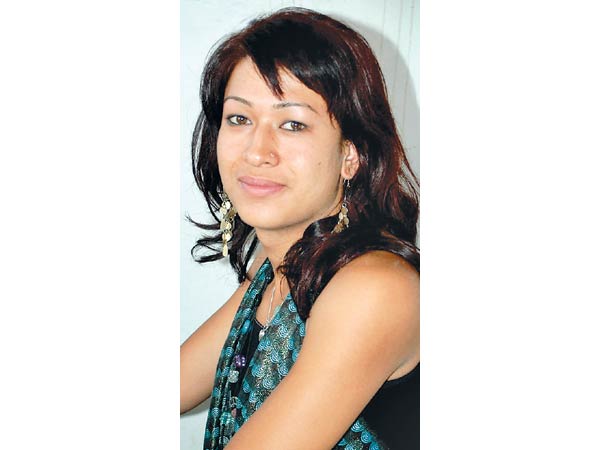
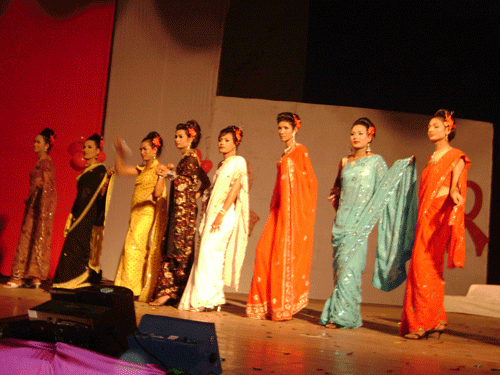
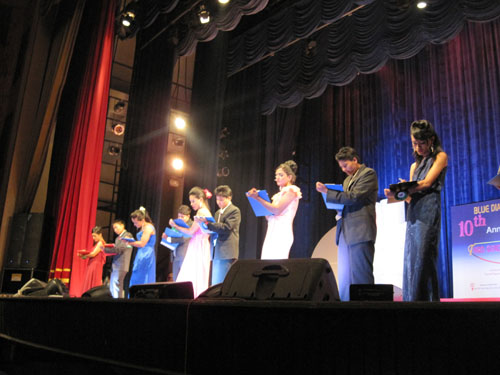
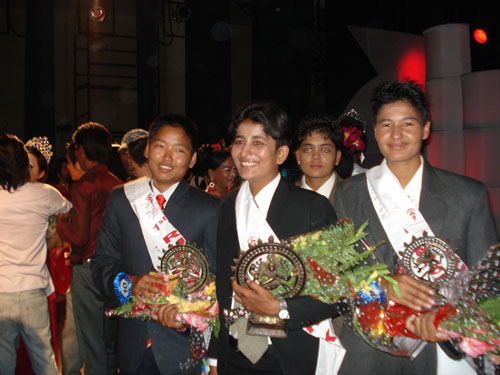
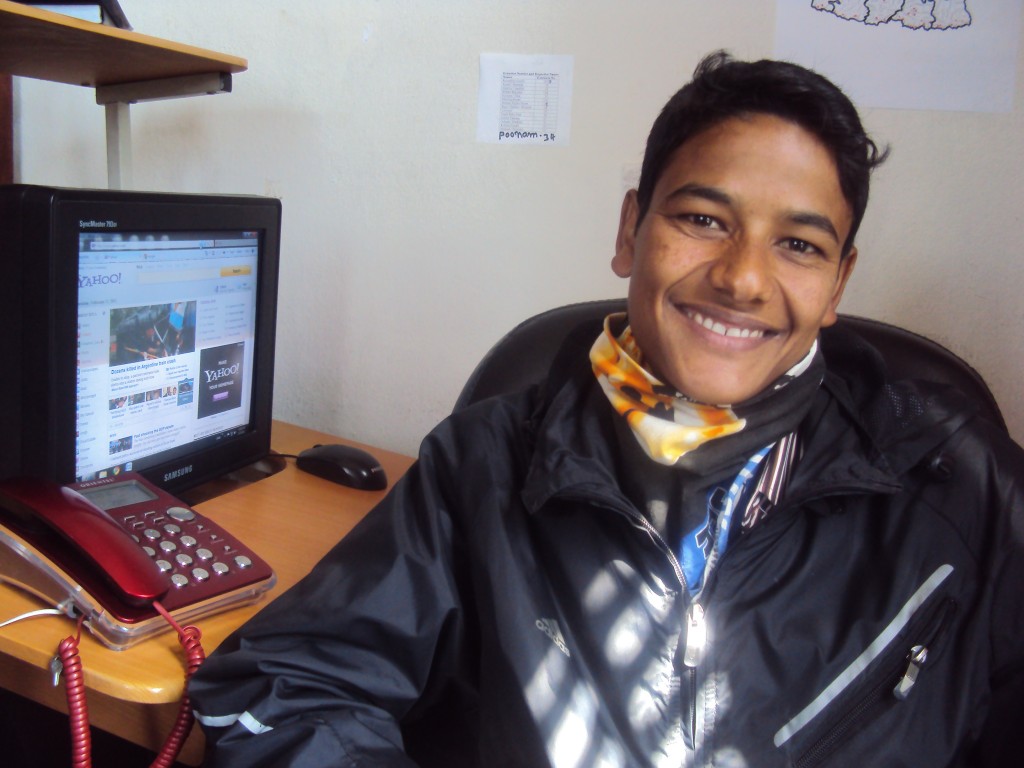
The term “inclusion” is now becoming very popular in every sector, both government and private. In Nepal the term inclusion refers to equal participation of all caste, gender, religion, class and ethnicity. Furthermore, inclusion also ascertains to end discrimination as it provides equal opportunity for participation. Nepal’s interim constitution #2063 prohibits all type of discrimination to every citizen regarding gender, ethnicity, caste and religion. It was a land mark decision of Nepal’s Supreme Court decided on 21st December, 2007 regarding sexual minorities in Nepal. It protects almost all the primary human rights of third gender. The “Yogyakarta Principle” is the back bone behind the Supreme Court’s decision. Principle was launched by a group of human rights experts on the Application of Human Rights Law in relation to Sexual Orientation and Gender Identity in Yogyakarta, Indonesia. This principle clearly asserted the need for law to protect all the universal human rights such as the right to equality and non discrimination, right to life, rights to education/health/, right to privacy, rights to freedom and so on. The Court has ordered the government to provide citizenship according to gender identity.
On one hand, the state has given these rights to every citizen, but on the other hand, Nepalese citizens must still battle for some of these fundamental human rights – especially freedom from discrimination based on gender identity. Third gender people, those who behave according to opposite gender roles than that which was identified at birth have been going through such hard situation. Their true identity as a third gender person is ignored by family, society and state.
They still cannot walk freely in the street because people’s eyes stare at their odd appearance. Families sometimes feel shame and believe that it is a sin to have such children; society makes fun of them; and finally and most egregiously, the state does not have a category to identify their gender. This is a violation of the order of the Court. Due to lack of awareness about the laws protecting them, third gender persons experience discrimination and violation of their fundamental rights in areas of education, health, family life, and employment with the government job.
Nepalese society’s persistent clinging to old ways is an example of the conservative mindset that holds on to traditions of past millennia. But the government and individuals all across Nepalese society embrace inclusion and support third gender persons’ right to lifestyles consistent with their gender. Families, from a lifetime of experience with third gender persons, understand that for third gender persons living as the gender assigned at birth is a travesty to their brother, sister, son, or daughter’s true identity.
Discrimination in the name of gender, caste, class, religion drives society back to the stone-age, and this is unacceptable in this 21st century. Therefore it is necessary that the Nepalese government develops ways to enforce the rights guaranteed by the Supreme Order. Nobody should be deprived of fundamental human rights, so assurance should be given soon by the state to protect the rights of sexual and gender minorities. All human rights violation must be stopped.
My experience getting to know two third gender persons reinforced for me the importance of this right.
As I sit waiting to meet Bhumika, she enters with warm grinning. Her pink t-shirt and black jeans highlight her figure in a perfect way. Her shaded eyelids and big eyes, along with her shining white stone nose-pin, make her smooth white cheeks sparkle. Her silky grey highlighted hair and her tall body add to her flawless beauty. I cannot avoid my double-takes, noticing her stunning looks.
So long ago, Bhumika’s mother gave birth to a boy, and the family rejoiced fully at the event of getting one more son, Kailash. Day by day, Kailash grew and everyone warmly welcomed his childlike, affectionate behavior. Kailash basked in happiness each moment of his childhood life.
One day at the sweet age of between five and six years old, Kailash ‘s eyes eagerly notice his mother’s dresses and make-up kit. He gets the great idea of dressing up and dancing in those lovely clothes, and he does as his mind says. Kailash feels good doing this, and his family too enjoys watching his performance, even though it’s somehow a little peculiar. Parents, other family members and neighbor take his acts just as a part of his childhood, and they suppose that all this will change routinely as he grows up. During these years he treasures his ability to do exactly what his mind wants to do.
Along with the flow of time, Kailash grows up. He does some household chores and plays some outdoor games. But his mind never loves to play football or cricket with his brother. His passion goes towards helping his mother in cooking, washing dishes, cleaning the house and so on. On the other hand, he is admitted to the nearby school. There he gets closer with girls. Making friends among boys is quite difficult. Noticing his unusual behavior, teachers often scold him to change the behavior, and they punish him. His friends tease him. As a result, he gives up going to school, but that doesn’t change anything for him. He too hopes and believes that as he grows up, his disposition will change naturally.
The teen age time of excitement arrives, and Kailash is shocked to find himself falling in love with a boy instead of girl. His feeling starts to be pinched. He spends days thinking about having different sexual feelings and spends tearful nights wrestling with the contrast between his body and his mind. Many times he questions himself, “Why is this happening with me?”
As this pain continues, he tries to pursue his brother’s activities to see if he can convince his mind to go with his body. He overlooks his desires. He starts to accompany his brother when playing football; he tries to adjust among boys, and tries to distract himself from his sense of sexuality. But all his attempts cannot succeed. The sensation of his mind always pulls his changing acts back. As a result, he feels nothing but frustration and despair. He supposes that he is the single person in the world having such trouble with mind and body. He censures God for making his life so wearisome. But nothing relieves his pain.
In the same way, conservative society’s attitude is a strong hurdle to get over. His every effort to behave masculine falls short. Nobody is aware of the conflicts inside him. His inner feelings continue to be so opposite from the way everyone expects him to act and feel. He finds no way to let his inside feeling out. Finally he ascertains that his mind, his heart and his personality are more an expression of who he really is, than the sexual organs of his body. He makes his mind up to live life according to his own truth.
After gathering his all courage, he shares his struggles, his annoyance and his heartache with his family. Watching each and every behavior since babyhood has made his family aware of his struggle, so yes, they accept the truth living inside Kailash. His family’s acceptance melts his frustration and makes his heart warm and happy.
Though he gets family supports, tackling society’s attitude seems impossible, so for some time Kailash bears the pain in the outside world. Finally, though, after making his heart strong he dares to fight against society’s gossip and reproach. He determines to make life happy and worth living as he really is. He decides to change his identity by using a feminine name, so Kailash becomes Bhumika.
The Other Way Around
Milan Shah’s story is similar to Bhumika’s. Now with his boyish haircut, his cool black jacket, and his matching jeans and muffler, there is no doubt about his sexual identity. His story began when he was born as a girl among several other daughters in far western region, Kailali.
Milan recalls his past. He was a good volleyball player in school so his difference was never noticed by his family or his society. He always took leadership in school. Teachers used to choose him as a negotiator if any fighting happened among students. He shares a fresh memory of helping to his father in digging, ploughing, making a shed for a cow, and other father’s duties. Unlike his sisters, he never wanted to follow mother’s household chores.
As time went on, he was recruited in the female troops of the Nepalese army, just like he always dreamed he would. The courage, passion and confidence boiling inside him helped to become number one in rank during tough training of army. He had always come in first in physical labor like running and carrying loads. With this achievement, he was selected as trainer for the next new group of female army officers.
He gladly shares his experience that he was often praised by senior officers about his potency to defeat all other counterparts. Nevertheless, during that service in Nepalese army, trouble then was planted in his life regarding his dual identity. After identifying his gender he was forced out from the job.
Milan had already known since school days that the gender of his thoughts and personality was male. Still, he knew that his career goal had always been to serve in the army. He applied to serve in the female ranks because as a citizen he was designated as a female. Though he fought for his right to serve his nation, his gender identity cost him the job of his dreams.
Blue Diamond Society, the Core of Hope:
Bhumika and Milan’s stories represent thousands of third gender individuals. According to Sunil babu Panta, honorable member of constituent assembly, it is estimated that 8-10% of the total population are sexual and gender minorities including third gender.
In 2001 an organization named the Blue Diamond Society (BDS) was established by people who were going through the crisis of living in Nepal as sexual and gender minorities. BDS aims to fight discrimination against sexual minorities and advocates for their basic human rights. BDS participated in the submission of the writ petition to the Supreme Court demanding an end to discrimination against sexual minorities. The Supreme Court decided in their favor.
Sunil Babu Panta, the founder and president of BDS now represents the sexual minorities group in Nepal’s constitution assembly. This opportunity has given him chances to speak up for their rights during assembly meetings. BDS has been playing a vital role as it provides legal supports, counseling and even economic supports. It has provided employment opportunity for many in its office. It has been empowering them by organizing many events like Mr. and Miss Pink, Nepal. In fact BDS has provided them relief to some extent. Since BDS was established, more than 300,000 sexual minority individuals have been in contact, and they have united throughout the nation to come out to society. In fact, BDS has been creating smiles on thousands of gloomy hearts. It’s the chore of their hope.
Understanding the Reality:
“People believe that we are un-natural,” Bhumika shares and sheds her pain. But she further clarifies by giving her experience as an example. Bhumika explains how her efforts to become masculine never succeeded in hiding the female living inside her. “Who wants to live such a humiliated and painful life?” she elucidated with gloomy feeling. She went through the hardest time during her teenage life, and she still feels all the old pain from her past.
Struggling for rights:
Milan, now happily living with his partner, has many unforgettable and painful memories. He never forgets when he was slapped in public toilet. “It’s very difficult for us in public places. We must hold our full bladder for 5-6 hours some times, otherwise the only other option would be to get slapped,” he explains. Similarly, he faced bitter experience in a hospital when he was brought to the emergency room. No doctor was willing to treat him after recognizing his gender identity.
The Honorable Mr. Panta agrees about Milan’s experience. He takes both the issues seriously, and he demands that these problems be addressed immediately. “We are treated lying in the corridor in the hospital. Hospitals do not have a separate ward for us. It touches my heart very deeply,” Panta further sheds his worries.
Economic empowerment is the most important factor in living independently. The biggest current challenge for BDS is to economically empower sexual and gender minorities. They are still struggling to get their citizenship as per their own identity, a situation that withholds from them so many job opportunities. Without mainstream employment, many are compelled to turn to work in prostitution. Consequently, HIV/AIDS has become another by-product of the issue.
Responsibilities of every one:
The State needs to recognize the nation’s transformation movement, the third people’s movement. As sexual and gender minorities are citizens of the nation, the government has the major responsibility to secure their access to the rights the constitution has granted them. With that, they would get all the state’s conveniences with no trouble. Also, the State should behave equally to all the citizens.
Yes, along with the state’s duties, there are family’s and society’s duties also. Family and society can feel the truth of sexual and gender minorities and should welcome them with warm smiles. All individuals first must feel happy in their own family and then in society so that they can live comfortably. Otherwise they have no option but to live helplessly in the street.
Of course the Nepalese government needs to develop ways to enforce the Supreme Order. But all the urging people can do is unlikely to bring that about during this time of transition and uncertainty in the government. Even the leadership of Mr. Panta is not likely to bring that about on his own. Lacking that, the people themselves, the ones who understand the importance of universal inclusion, can and will work together to bring this about.
Every day, organizations working for human rights are mushrooming. Heaps of posters, wall-paintings, and slogans are seen everywhere in public places about protecting human rights. It is time for them to include the rights of sexual and gender minorities in their vision. Human rights activists, aware of the miserable living conditions for sexual minorities in Nepal, will raise their voices to make people aware of the needs of sexual and gender minorities and focus their efforts to support their dignity and basic rights especially in education, health, housing, employment and right livelihood. People will come together through and with organizations, and organizations can come together, to raise awareness and bring about the universal inclusion that the interconnected planet Earth of our 21st Century demands.
This article is part of a writing assignment for Voices of Our Future a program of World Pulse that provides rigorous new media and citizen journalism training for grassroots women leaders. World Pulse lifts and unites the voices of women from some of the most unheard regions of the world.
